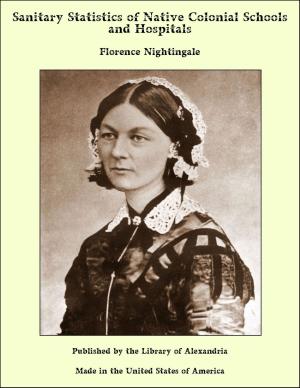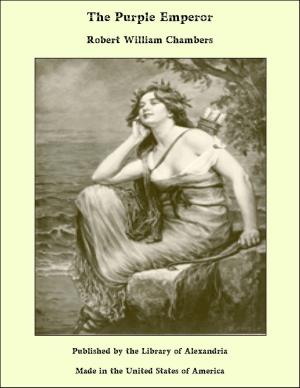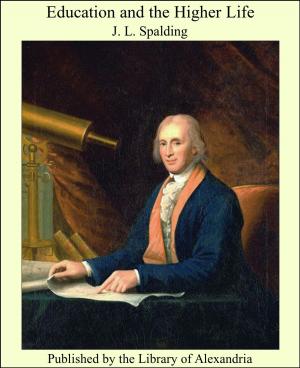Workhouse Nursing: The Story of a Successful Experiment
Nonfiction, Religion & Spirituality, New Age, History, Fiction & Literature| Author: | Florence Nightingale | ISBN: | 9781465609403 |
| Publisher: | Library of Alexandria | Publication: | March 8, 2015 |
| Imprint: | Language: | English |
| Author: | Florence Nightingale |
| ISBN: | 9781465609403 |
| Publisher: | Library of Alexandria |
| Publication: | March 8, 2015 |
| Imprint: | |
| Language: | English |
The following pages contain a brief account of the experiment successfully tried by the Select Vestry of Liverpool (the guardians of the poor)—the introduction of trained Nurses into the male wards of the Workhouse Infirmary. That experiment having resulted so successfully as to induce the Vestry to extend the system to the remainder of the infirmary, it may be interesting to those who are concerned in the management of workhouses elsewhere to learn something of its history and progress. It is the writer’s object to explain— 1. The grounds on which the Vestry were led to undertake the experiment, as stated in the preliminary report of Mr. Carr, the governor, and that of the sub-committee of the Vestry appointed to consider the proposed scheme; and the replies received to inquiries addressed by them to institutions and persons connected with the training and employment of skilled nurses in London and Liverpool, with letters on the subject from Miss Nightingale and Sir John McNeill. 2. The results of the experiment, so far as hitherto ascertained. The Liverpool Vestry had previously made considerable efforts to improve the workhouse infirmaries. The medical men had been encouraged to make requisition for every material appliance that could facilitate the cure of the sick; and paid female officers were appointed at the rate of one to each 150 or 200 beds, to superintend the giving of medicines and stimulants, and so forth: but of course so small a number, even had they been trained nurses, could do no real nursing, and could exercise little supervision over the twenty drunken or unreliabl pauper nurses who were under the nominal direction of each paid officer. An appeal was made to the Vestry to consummate the good work they had thus partially commenced, and it was urged that Liverpool should assume the lead in the task of workhouse reform.
The following pages contain a brief account of the experiment successfully tried by the Select Vestry of Liverpool (the guardians of the poor)—the introduction of trained Nurses into the male wards of the Workhouse Infirmary. That experiment having resulted so successfully as to induce the Vestry to extend the system to the remainder of the infirmary, it may be interesting to those who are concerned in the management of workhouses elsewhere to learn something of its history and progress. It is the writer’s object to explain— 1. The grounds on which the Vestry were led to undertake the experiment, as stated in the preliminary report of Mr. Carr, the governor, and that of the sub-committee of the Vestry appointed to consider the proposed scheme; and the replies received to inquiries addressed by them to institutions and persons connected with the training and employment of skilled nurses in London and Liverpool, with letters on the subject from Miss Nightingale and Sir John McNeill. 2. The results of the experiment, so far as hitherto ascertained. The Liverpool Vestry had previously made considerable efforts to improve the workhouse infirmaries. The medical men had been encouraged to make requisition for every material appliance that could facilitate the cure of the sick; and paid female officers were appointed at the rate of one to each 150 or 200 beds, to superintend the giving of medicines and stimulants, and so forth: but of course so small a number, even had they been trained nurses, could do no real nursing, and could exercise little supervision over the twenty drunken or unreliabl pauper nurses who were under the nominal direction of each paid officer. An appeal was made to the Vestry to consummate the good work they had thus partially commenced, and it was urged that Liverpool should assume the lead in the task of workhouse reform.















